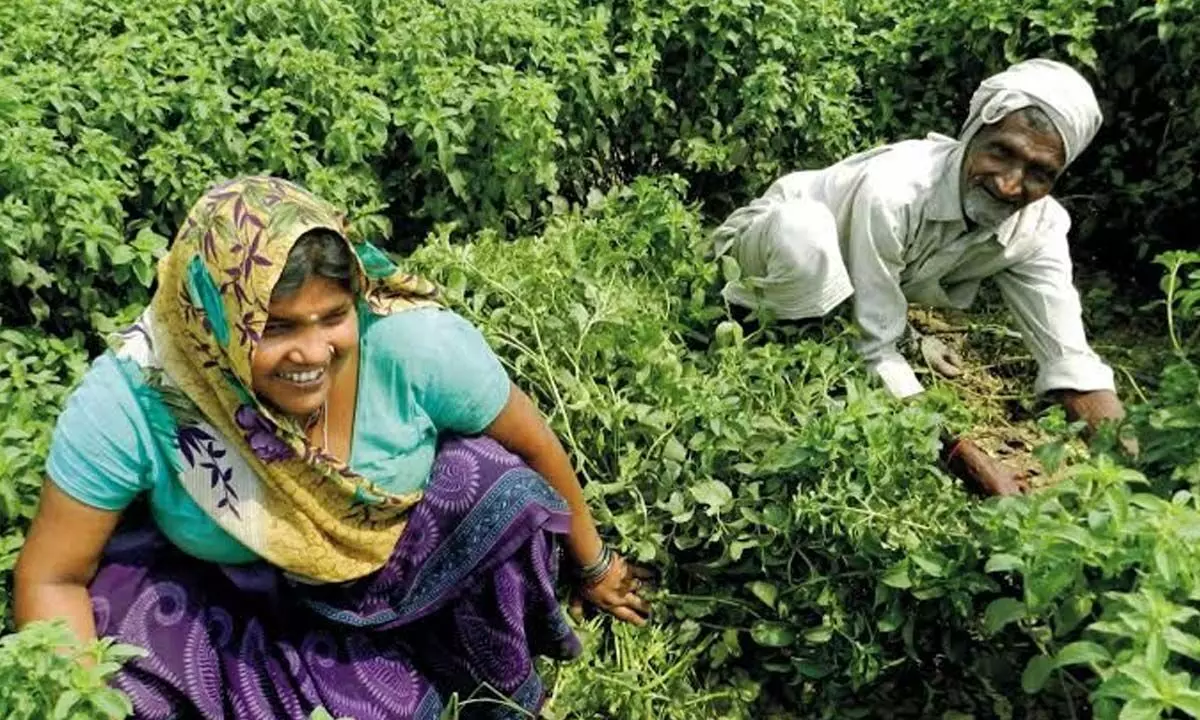Natural farming spreads to 63 mandals in Anantapur

Farmers in Puttaparthi excited about natural farming results.
- The government has involved women groups to popularise the movement and to influence men towards it
- About 300 villages under 30 clusters benefitting 1 lakh farmers have been declared 'natural farming' villages
Anantapur-Sathya Sai dist: Natural farming in the undivided district has spread to all the 63 mandals in more than a lakh acres and is drawing the attention of even countries abroad. The AP government has involved women groups to popularise the movement and to influence men towards the movement.
About 300 villages under 30 clusters benefitting 1 lakh farmers have been declared 'natural farming' villages by the department of Agriculture in the district.
In each cluster, 10 villages have adopted natural farming methods and techniques and has completely done away with the use of chemicals and fertilizers.
District Project Manager V Lakshma Naik told The Hans India that Jeevamrutham, an amalgamation of animal dung, urine and botanical waste is being used by farmers replacing chemicals and pesticides to a great extent. Farmers, who have seen the benefits of natural organic farming, are moving away from highly chemicalised farming to organic farming by using only animal dung and agriculture waste as manure and using 'Jeevamrutham.'
Farmers in the natural farming zone are raising horticulture crops, vegetable, mulberry, groundnut and even millets adopting natural farming techniques. The farmers are educated on the benefits of natural farming and those who have taken to organic fertilizers are themselves spreading the good news associated with it. He stated organic farming reduces cultivation costs, boosts soil health and increases the yield of crop apart from contributing to human health.
Farmers in Puttaparthi mandal are excited that organic farming has negated all the evils of chemicals and pesticides. Kulayappa, a farmer of Puttaparthi mandal, says that organic farming is 80 per cent cheaper than fertilizer farming. Obulesh says that he spent a mere Rs 25,000 on organic inputs and his profit turned out to be Rs 3.50 lakh on his 4-acre crop.
A 3-member committee appointed by the department of Agriculture is engaged in spreading the movement motivating the farmers into it.

